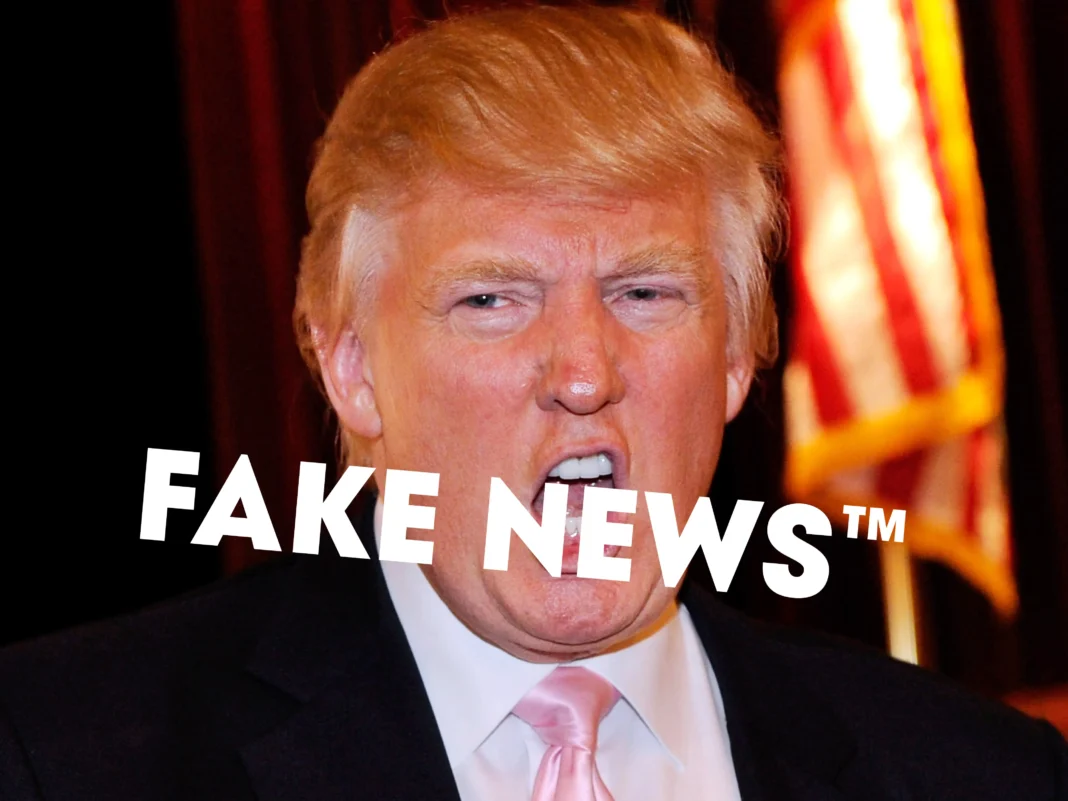László Benda, MUOSZ / IPM
Donald Trump’s Selective Relationship with the Truth
As Peter Baker, veteran White House correspondent for The New York Times, succinctly put it, Donald Trump has spent his life bending the truth to suit his needs. Yet perhaps never as brazenly as during his relentless campaign to reclaim the White House. In virtually every campaign speech, it takes mere moments for him to deride those armed with the “real facts.”
For Trump, this campaign begins not in the present but in the shadow of his 2020 electoral defeat. While his role in the January 6, 2021, Capitol siege—inciting and organizing extremist factions—remains a significant part of his legacy, it is his persistent narrative of a “rigged election” that has defined his rhetoric over the last four years.
Truth and Trump: A Long History of Fabrication
Trump’s contentious relationship with facts predates his political ascent. As Duke University professor Bill Adair noted in his recent book Beyond the Big Lie, “No one has ever lied on this scale in American politics.” Adair highlights not just the volume and repetition of Trump’s falsehoods but their infectious spread through Republican Party culture. “He has normalized dishonesty,” Adair explains, “to the point where his talking points echo in Congress and across right-wing media platforms like Fox News.”
In Trump’s first memoir, The Art of the Deal, he described his approach to communication as “truthful hyperbole.” However, Tony Schwartz, the book’s ghostwriter, later admitted that this was little more than a euphemism for deceit. “Truthful hyperbole,” Schwartz confessed in an interview, “is just another way of saying ‘you lied.’”
Over decades, Trump has wielded such “truthful hyperbole” to boost his business and political ambitions. He exaggerated his wealth, inflated the height of his buildings, overstated television ratings, questioned Barack Obama’s birthplace, and even fabricated anecdotes about peace-seeking visits to the Gaza Strip.
The Inherited Myths
Many of Trump’s self-spun myths center around his origin story. The narrative of his meteoric rise, supposedly fueled by a modest $1 million loan from his father, omits the substantial $413 million fortune (adjusted for today’s value) he inherited. Similarly, he has claimed his grandfather emigrated from Sweden, despite his actual German roots, and misrepresented his father’s birthplace as Germany instead of the Bronx.
Trump’s fixation on birtherism—insisting that Barack Obama was born in Kenya—was another cornerstone of his rhetorical arsenal. Even Michael Cohen, his former lawyer, admitted that Trump lied about funding a private investigation into Obama’s Hawaiian birth records, a probe that never existed.
While one might attribute occasional errors to misinformation or lapses in judgment, Trump’s systematic repetition of falsehoods goes far beyond the bounds of political missteps.
A Pattern of Misinformation
Among Trump’s dubious claims:
- He falsely stated he had never met Vladimir Putin before his presidency, despite evidence of earlier interactions concerning a potential Trump Tower in Moscow.
- He claimed the U.S. consistently lost disputes at the World Trade Organization, when in fact Washington had won 90% of its cases.
- He asserted the U.S. had a trade deficit with Canada, though the opposite was true.
- He spread the outrageous claim that Haitian immigrants consumed household pets—a remark met with ridicule.
According to The Washington Post, Trump made 30,573 false or misleading statements during his presidency, averaging 21 per day.
Trump’s Authoritarian Promises
Trump has signaled his willingness to bypass democratic norms if re-elected. He has proposed sweeping changes, including ministerial appointments without Senate approval and the wholesale reversal of Biden-era policies. Federal Reserve Chair Jerome Powell has already stated he would resist any attempts by Trump to interfere with monetary policy.
The prospect of Trump’s return has raised concerns about the erosion of democratic institutions, including the freedom of the press. Trump has openly praised leaders like Hungary’s Viktor Orbán, who have systematically undermined press freedom through economic coercion rather than direct censorship.
The Role of the Media
Trump’s antipathy toward the press is long-standing. He has routinely dismissed major outlets as “enemies of the people,” favoring podcasts and partisan rallies over traditional interviews or debates. The press, in turn, faces its own challenges in navigating a politically charged environment.
Recent decisions by prominent newspapers illustrate this tension. The Washington Post, under Jeff Bezos, announced it would no longer endorse presidential candidates, breaking a 50-year tradition. Similarly, the Los Angeles Times adopted a stance of ostensible neutrality, likely to avoid potential retribution from a Trump administration. These shifts, however, have alienated readers and staff alike, with The Washington Post reportedly losing a quarter of a million subscribers in the aftermath.
In contrast, The New York Times has experienced growth, a testament to its steadfast commitment to liberal values amid a politically polarized landscape.
A New Playbook
Anne Applebaum, Pulitzer Prize-winning journalist, warns that Trump could follow the playbook of Hungary and Poland, where financial pressures have been used to muzzle independent media. Rather than outright censorship, these governments exploit economic vulnerabilities to consolidate control over public discourse.
Trump’s campaign rhetoric has only fueled concerns that he would wield state power against critical media outlets. His vitriolic language has already contributed to declining trust in independent journalism and an increase in threats against reporters.
As Donald Trump positions himself for a return to the White House, his strained relationship with truth and his authoritarian tendencies remain central to his political identity. Whether his promises of sweeping change represent a restoration of power or a further erosion of democratic norms is a question that looms large over the American electorate.

